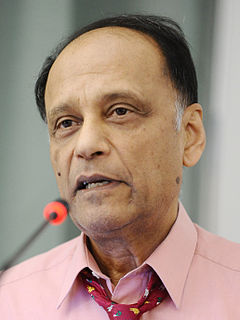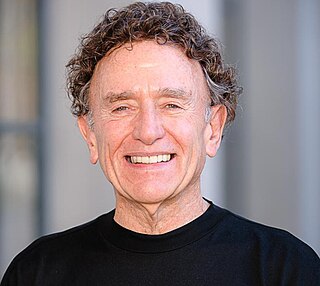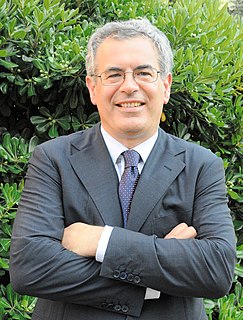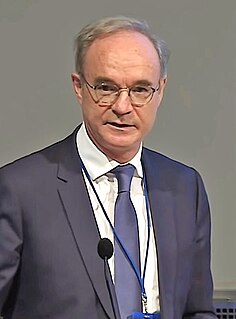Agricultural economics is an applied field of economics concerned with the application of economic theory in optimizing the production and distribution of food and fiber products. Agricultural economics began as a branch of economics that specifically dealt with land usage. It focused on maximizing the crop yield while maintaining a good soil ecosystem. Throughout the 20th century the discipline expanded and the current scope of the discipline is much broader. Agricultural economics today includes a variety of applied areas, having considerable overlap with conventional economics. Agricultural economists have made substantial contributions to research in economics, econometrics, development economics, and environmental economics. Agricultural economics influences food policy, agricultural policy, and environmental policy.
Contingent valuation is a survey-based economic technique for the valuation of non-market resources, such as environmental preservation or the impact of externalities like pollution. While these resources do give people utility, certain aspects of them do not have a market price as they are not directly sold – for example, people receive benefit from a beautiful view of a mountain, but it would be tough to value using price-based models. Contingent valuation surveys are one technique which is used to measure these aspects. Contingent valuation is often referred to as a stated preference model, in contrast to a price-based revealed preference model. Both models are utility-based. Typically the survey asks how much money people would be willing to pay to maintain the existence of an environmental feature, such as biodiversity.
David William Pearce OBE was Emeritus Professor at the Department of Economics at University College London (UCL). He specialised in, and was a pioneer of, environmental economics, having published over fifty books and over 300 academic articles on the subject, including his 'Blueprint for a Green Economy' series.
The Royal Economic Society (RES) is a professional association that promotes the study of economic science in academia, government service, banking, industry, and public affairs. Originally established in 1890 as the British Economic Association, it was incorporated by royal charter on December 2, 1902. The Society is a charity registered with the U.K. Charity Commission under charity number 231508.

Sir Partha Sarathi Dasgupta, is an Indian-British economist who is the Frank Ramsey Professor Emeritus of Economics at the University of Cambridge, United Kingdom and Fellow of St John's College, Cambridge.
The Allied Social Science Associations (ASSA) is a group of academic and professional organizations that are officially recognized by the American Economic Association (AEA) and are related to the study of social sciences. As of 2007, there are fifty organizations that participate in the annual meetings of the ASSA, including:

Indira Gandhi Institute of Development Research (IGIDR) is an advanced research and educational institution in Mumbai, India. The institute's mission is to carry out research on developmental issues from a multi-disciplinary point of view. This includes economics, energy and environmental policy.

Gordon Rausser is an American economist. He is currently the Robert Gordon Sproul Distinguished Professor Emeritus, Dean Emeritus, at Rausser College of Natural Resources and more recently, a professor of the graduate school at the University of California, Berkeley. On three separate occasions, he served as chairman of the Department of Agriculture and Resource Economics, served two terms as Dean of the Rausser College of Natural Resources, and has served on the board of trustees of public universities and one private university. Rausser has been appointed to more than 20 board of directors of both private and publicly traded companies, including chairman of several of such boards.
The Association of Environmental and Resource Economists (AERE) was founded in 1979 in the United States as a means of exchanging ideas, stimulating research, and promoting graduate training in environmental and natural resource economics. The majority of its members are affiliated with universities, government agencies, non-profit research organizations, and consulting firms. Many of AERE's members hold graduate degrees in economics, agricultural economics, or related fields, but there are numerous student members as well. The organization also serves many non-specialist members with environmental policy interests. The United States is the country with the largest single share of AERE members, but the organization welcomes members from all countries. Annual individual memberships currently number approximately 800. AERE is generally acknowledged as the primary professional organization for Environmental and Natural Resources economists in the USA. The European Association of Environmental and Resource Economists is its European equivalent.

The Review of Environmental Economics and Policy (REEP) is a peer-reviewed journal of environmental economics published twice each year. It is the official "accessible" journal of the Association of Environmental and Resource Economists (AERE), and complements the organization's other journal, the Journal of the Association of Environmental and Resource Economists (JAERE), which has a more technical research orientation.
The National Association for Business Economics (NABE) is the largest international association of applied economists, strategists, academics, and policy-makers committed to the application of economics. Founded in 1959, it is one of the member organizations of the Allied Social Science Associations. According to the association's website, "NABE's mission is to provide leadership in the use and understanding of economics.".

Carlo Carraro is Professor of environmental and climate economics at Ca' Foscari University of Venice. He holds a PhD from Princeton University. He was the rector of the University of Venice from 2009 to 2014. In 2008, Carlo Carraro was elected vice-chair of the Working Group III and member of the bureau of the Nobel Laureate Intergovernmental Panel on Climate Change (IPCC). He was re-elected for a second term in 2015. He chairs the National Committee on Climate Change Impacts on Infrastructures and Mobility established by the Italian Ministry for Sustainable Infrastructures and Mobility. He belongs to the EU-DG ECFIN High Level Advisory Group and he is Strategic Board Member of the Euro Mediterranean Centre for Climate Change (CMCC).

Armin Falk is a German economist. He has held a chair at the University of Bonn since 2003.
Charles D. Kolstad is an American economist, known for his work in environmental economics, environmental regulation, climate change and energy markets. He is Professor and Senior Fellow at Stanford University. Prior to his appointment at Stanford, he was Professor of Economics at the University of California, Santa Barbara, appointed to both the Bren School of Environmental Science & Management and the Department of Economics. Kolstad was also Chair of the UCSB Department of Economics and co-director of the University of California Center for Energy & Environmental Economics. He has previously held a wide variety of academic positions, including at the University of Illinois, Harvard University, Stanford University and MIT.

David Zilberman is an Israeli-American agricultural economist, professor and Robinson Chair in the Department of Agricultural and Resource Economics at the University of California, Berkeley. Zilberman has been a professor in the Agricultural and Resource Economics Department at UC Berkeley since 1979. His research has covered a range of fields including the economics of production technology and risk in agriculture, agricultural and environmental policy, marketing and more recently the economics of climate change, biofuel and biotechnology. He won the 2019 Wolf Prize in Agriculture, was the President of the Agricultural and Applied Economics Association (AAEA), and is a Fellow of the AAEA and Association of Environmental and Resource Economics. David is an avid blogger on the Berkeley Blog and a life-long Golden State Warriors fan.

The Italian Association of Environmental and resource Economists is a scientific Association that aims at:
The Latin American and Caribbean Economic Association (LACEA) is an international association of economists with common research interests in Latin America. It was founded in July 1992, to encourage professional interaction and foster increased dialogue among researchers and practitioners whose work focuses on the economies of Latin America and the Caribbean. Since 1996, its Annual Meetings bring together scholars, practitioners and students to discuss research papers and listen to invited keynote speakers who present the latest academic findings in economic and social development issues. LACEA fosters several thematic research networks, publishes the academic journal Economia, and administers the digital repository LACER-LACEA.
Thomas Harry (Tom) Tietenberg is an American economist and environmentalist, and Emeritus Professor at Colby College, known for his work in the field of resource-based economy.

Patrick Bolton is the Barbara and David Zalaznick Professor of Business at Columbia Business School (2005-present) and a Visiting Professor of Finance at Imperial College London (2018-present). He is a past president of the American Finance Association (2015).
Gilbert E. Metcalf is the John DiBiaggio Professor of Citizenship and Public Service and a professor of economics at Tufts University. In addition, he is a Research Associate at the National Bureau of Economic Research and a University Fellow at Resources For The Future. Under the Obama Administration, he served as the Deputy Assistant Secretary for Environment and Energy at the U.S. Department of Treasury where he was the founding U.S. Board Member for the UN based Green Climate Fund. His research interests are in the areas of energy, environmental, and climate policy.








